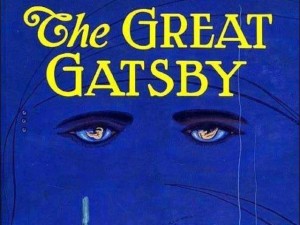I have a confession to make:
I don’t think “The Great Gatsby” is the Great American Novel. Despite the best efforts of brilliant readers like Nancy Pearl, I return to the reaction I had when I first read the story as a high school sophomore: There are some beautiful sentences in this book, but I don’t give a damn about the story.
Don’t get me wrong. It’s great piece of writing.
I can clock the moment my husband became interesting by the time he compared the description of Gatsby’s beautiful shirts to the rhythms of jazz. I believe that F. Scott Fitzgerald‘s final Gatsby sentences are some of the most brilliant in literature. And I know that the concerns of money, class and privilege remain dramatically relevant today.
But the mistress’s death feels contrived. Which leaves the rest of the book feeling contrived, but it meant that I got to spend a whole lot of time with a cool teacher while she explained it to me. This was my first introduction to literary criticism (Thank you, Mrs. Kercher).
In the last decade, Fitzgerald’s become something of a cult with whole books being written about Gatsby and his brilliance.
Let’s face it, Fitzgerald didn’t come up with his characters, witty dialogue and descriptions all on his own; he patterned some of the women after Zelda (his wife) and lifted sentences from her letters and diaries to prop up his own work.
I know. Artists steal. But at what cost?
Certainly, Fitzgerald found himself plotting fresh breakdowns for Zelda and cribbed passages from letters written from the insane asylum.
Whether or not Zelda would have been a great author on her own is something we can’t prove.
But here’s what I suspect:
I think the fact that Fitzgerald couldn’t do it on his own ate at his core. I believe it made him less of an artist, leaving him even more disempowered in the face of his own efforts. And I have to wonder what would have happened if he and his famous editor had opted for another course:
What if they had invited Zelda in? What if Zelda and F. Scott shared a byline, granting Zelda access to the fame she helped make possible? At the very least, isn’t that something readers could remember to do today?
